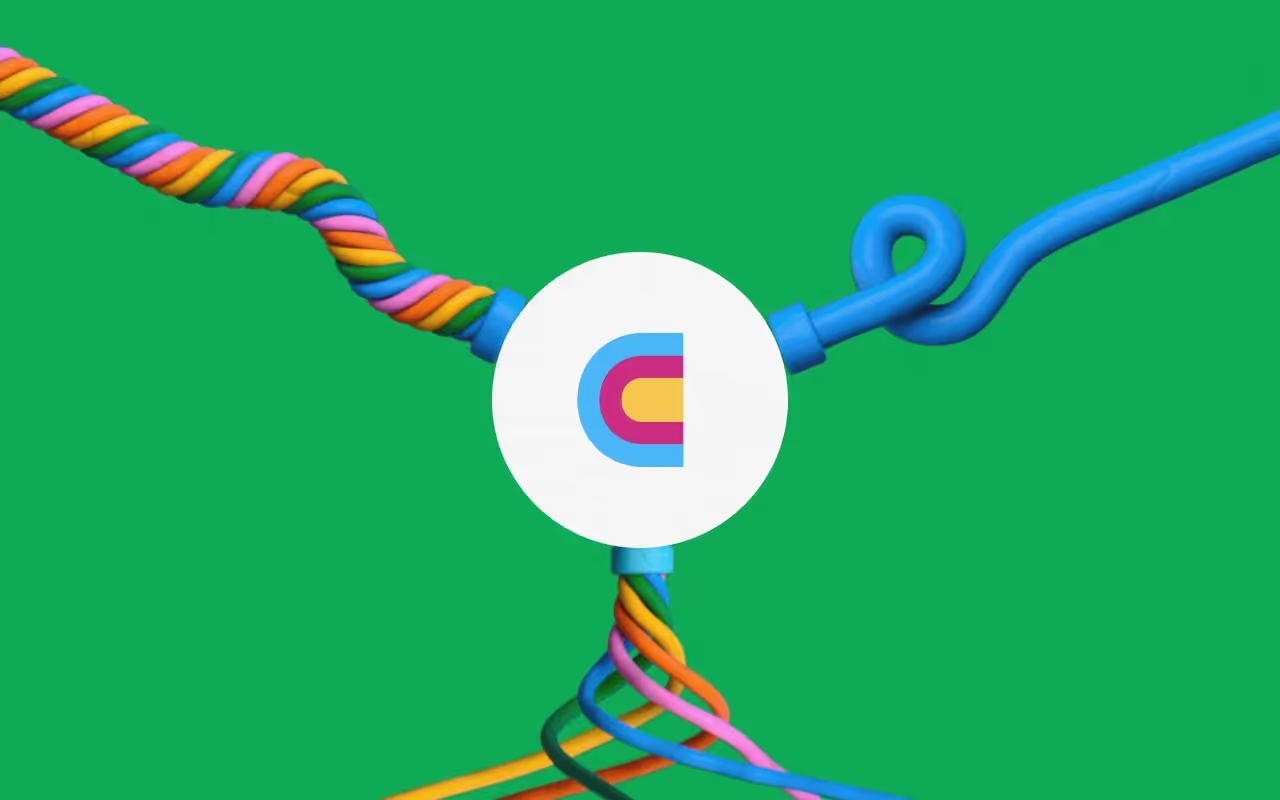🔗 TAM Integration: Connecting Data Intelligence to Revenue Systems
Introduction
In our last lesson, we covered advanced TAM sourcing techniques to help you find and qualify your ideal prospects at scale.
Now we're going to show you how to connect your TAM sourcing directly into your existing GTM processes, enable your sales and marketing teams to actually use this intelligence, and measure the ROI of your efforts.
This lesson focuses on the critical final step: turning market intelligence into systematic action across your revenue organization.
📊 CRM Integration: Building Your Single Source of Truth
Your CRM should serve as the single source of truth for your entire revenue organization.
Strategic Field Mapping
Leading teams map TAM segments directly to CRM fields designed around their specific GTM strategy. Instead of relying on standard industry classifications that don't reflect buying behavior, they create custom fields that capture the dimensions that actually matter for their sales process.
For example, a cybersecurity company might create custom fields like "Security Stack Maturity,” "Compliance Requirements,” and "Remote Work Score.” These dimensions directly inform sales conversations and solution positioning, as long as the rest of your team is aligned on what they mean.
Automated Record Management
Using Clay, you can automate record creation and updates systematically with all enrichment data properly populated in the appropriate custom fields.
This ensures your CRM stays current without manual data entry while maintaining consistent data structure across all records. Sales teams can trust that every account has the intelligence they need for effective engagement.
Making Data Actionable
The key principle is translating raw data into intelligible, actionable insights that can be easily understood and leveraged by your entire team. Technical scores like "uses 6 security tools from 4 vendors" become actionable insights like "High consolidation opportunity - fragmented security stack creating gaps and operational overhead."
This translation ensures that enriched data actually informs sales behavior rather than sitting unused in CRM fields that reps don't understand or value.
💬 Sales Enablement: Context Over Data Dumps
Sales teams don't want more data. They want better conversations.
Real-Time Contextual Intelligence
With Clay, you can build Slack summaries that deliver crucial context precisely when it matters most. Instead of making reps dig through CRM records, intelligent alerts provide immediate relevance:
"New enterprise prospect - Acme Corp just raised $50M Series B and is scaling engineering team 3x. Currently using legacy tools that don't integrate with modern stack. Perfect fit for platform consolidation story emphasizing workflow efficiency and developer productivity."
This real-time intelligence enables reps to engage immediately with relevant context while the opportunity is fresh.
AI-Generated Talking Points
Use AI to automatically generate talking points that connect TAM insights directly to value propositions. If enrichment data shows a prospect uses five point solutions across their tech stack, AI generates talking points focused on integration challenges, data synchronization issues, and workflow efficiency gains from platform consolidation.
These AI-generated insights ensure every rep has sophisticated positioning regardless of their experience level, democratizing best practices across your entire sales organization.
🎯 Marketing Alignment: Compounding GTM Results
When marketing deeply understands TAM segments, the entire go-to-market engine becomes more efficient and effective.
Laser-Focused ABM Campaigns
ABM campaigns become laser-focused around specific segments with messaging crafted for their unique challenges, tech environments, and buying contexts.
Measurable Marketing Impact
TAM-aligned marketing consistently delivers superior results:
- Higher conversion rates through better message-market fit and audience targeting
- Lower acquisition costs by eliminating waste on poor-fit prospects
- Faster sales cycles when marketing warms prospects with relevant content before sales engagement
- Better attribution through clear segment tracking and performance measurement
Sophisticated Content Personalization
Content personalization becomes genuinely sophisticated based on TAM segment characteristics. Enterprise prospects receive scalability case studies highlighting global deployment and enterprise-grade security. Mid-market companies get ROI calculators demonstrating fast payback periods and resource efficiency. SMB prospects access self-service resources and quick-start guides emphasizing ease of implementation.
This segmented content strategy ensures every prospect encounters materials that resonate with their specific needs and constraints.
📈 Measuring TAM Sourcing ROI
How do you know if all this sophisticated targeting is actually working? Measuring TAM sourcing effectiveness requires tracking multiple dimensions of performance beyond simple pipeline metrics.
Coverage and Penetration Analysis
Coverage and penetration rates reveal how effectively you're reaching your addressable markets. Are you identifying and engaging 80% of your ideal customers, or just 20%? This fundamental metric shows whether your TAM sourcing is comprehensive or leaving massive opportunities on the table.
Coverage Rate Calculation: To understand your current versus addressable market, import your existing CRM accounts into Clay, then compare those against Clay's full TAM based on your ICP criteria. The calculation: divide accounts in CRM by total TAM, then multiply by 100.
Penetration Rate Tracking: Start with ICP match analysis where you score existing accounts against ideal customer criteria. Track your ICP match percentage based on scores generated in Clay across your current customer base.
Account Penetration Metrics: Use Clay to enrich your account data and identify expansion opportunities within existing customers. Track multi-contact coverage within target accounts and measure contact discovery rates for different account types.
Pipeline Quality Metrics
Pipeline generation and conversion rates by segment reveal which parts of your TAM deliver the most value. Track not just volume but conversion velocity—which segments move through your pipeline fastest? Which require the most sales effort? Which close at the highest rates?
This segmentation reveals where to focus resources for maximum ROI and which segments might need different sales approaches or aren't worth pursuing at all.
Revenue Attribution by Segment
Revenue attribution shows true ROI by connecting TAM segments to actual business outcomes. Which segments drive the most revenue? Generate highest lifetime value? Show fastest growth rates? Have best retention and expansion characteristics?
These insights inform strategic resource allocation and long-term go-to-market strategy, helping you double down on winning segments while reconsidering underperforming ones.
NEW: Sculptor
Sculptor's table analysis capabilities transform how you extract insights from your Clay data. Instead of exporting to Excel or another tool, you can ask Sculptor strategic analysis questions and get instant answers.
💼 Example: SaaS Platform Consolidation
Here's a concrete example that demonstrates the power of complete TAM-to-GTM integration.
The Strategic Approach
A SaaS company built TAM sourcing specifically focused on identifying companies using technology combinations that indicate platform consolidation readiness. They're not just looking for "SaaS companies"—they're finding businesses with fragmented tool stacks showing integration pain.
Systematic Enrichment and Scoring
Clay enriches each prospect with technographic data revealing their current tool stack, intent signals showing active research behavior, and growth indicators suggesting scaling challenges. The system automatically creates Salesforce records populated with custom scores like "Integration Complexity Score" (quantifying their tool fragmentation) and "Expansion Potential" (estimating growth trajectory).
Sales Activation
Sales receives Slack notifications with actionable intelligence: "High-intent prospect - TechCorp using 6 disconnected workflow tools, recently posted 3 DevOps jobs, Glassdoor reviews mention scaling challenges and tool overhead."
This context enables reps to open conversations around specific pain points they know exist rather than generic discovery calls.
Marketing Amplification
Marketing uses the same segment definitions for targeted LinkedIn campaigns specifically about workflow consolidation. Campaign messaging speaks directly to the integration headaches these companies experience daily.
This is true integration power at work— when TAM sourcing becomes the foundation for everything GTM does, creating alignment and efficiency across the entire revenue organization.
🔄 The Continuous Improvement Loop
Effective TAM integration is an ongoing system that improves through feedback loops connecting outcomes back to targeting.
Closed-Loop Optimization
Track which TAM segments convert best and feed that learning back into scoring models. If mid-market SaaS companies with specific tech stack patterns consistently close faster and larger, automatically increase their prioritization scores.
Monitor which enrichment data points actually correlate with sales success. If "recent funding" matters less than "technology adoption patterns," adjust your data collection and scoring accordingly.
Cross-Functional Learning
Create feedback mechanisms where sales insights about prospect challenges inform marketing messaging, marketing performance data reveals which segments respond to different value propositions, and customer success intelligence about expansion patterns identifies new TAM segments worth pursuing.
✅ Key Takeaways
TAM sourcing only creates value when deeply integrated into revenue systems and processes. Strategic CRM integration requires custom fields that reflect your go-to-market reality rather than generic categories.
Sales enablement focuses on delivering contextual intelligence at the right moment rather than drowning teams in data. Marketing alignment around TAM segments dramatically improves campaign performance and resource efficiency.
Measuring TAM sourcing ROI requires tracking coverage and penetration rates, pipeline quality by segment, revenue attribution, and operational efficiency gains. Often the efficiency improvements deliver more value than direct revenue increases.
Real integration means TAM intelligence informs every revenue activity, from sales conversations to marketing campaigns to customer success strategies, creating systematic competitive advantage.
Connect, explore and learn together
Read our GTM blog, or try out our top Claybooks and templates to transform your growth ideas into outreach in minutes.





















